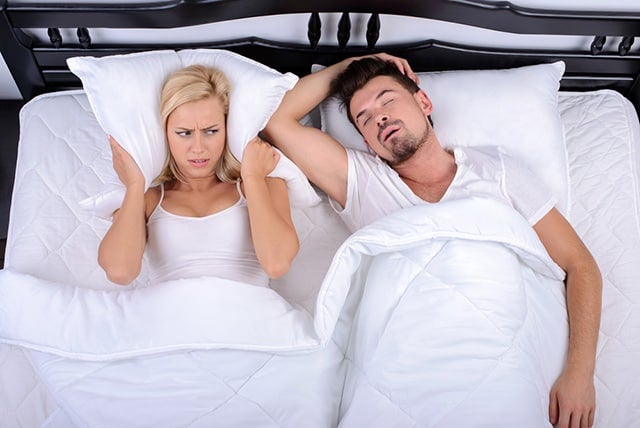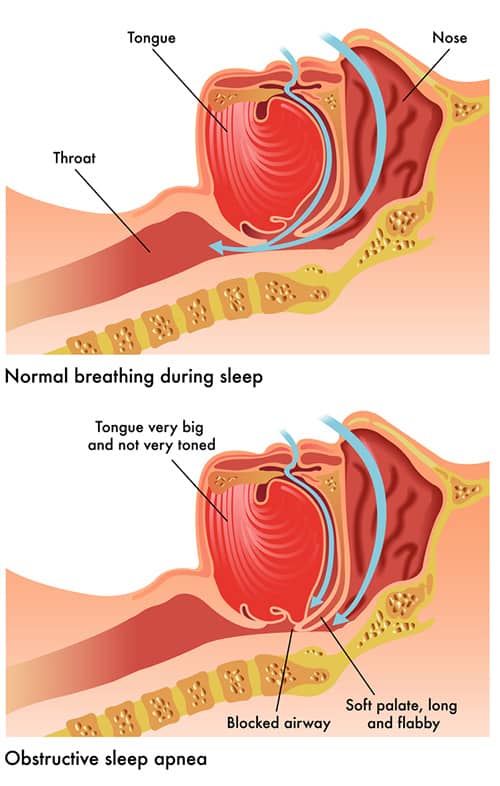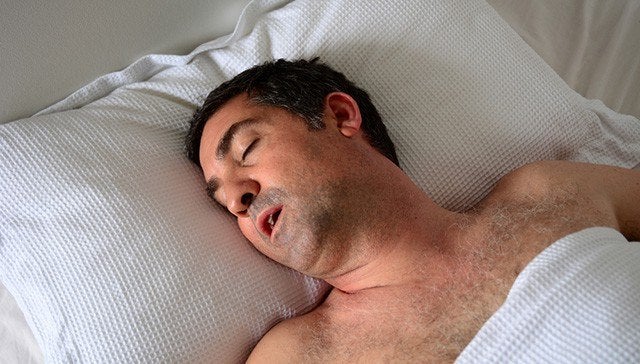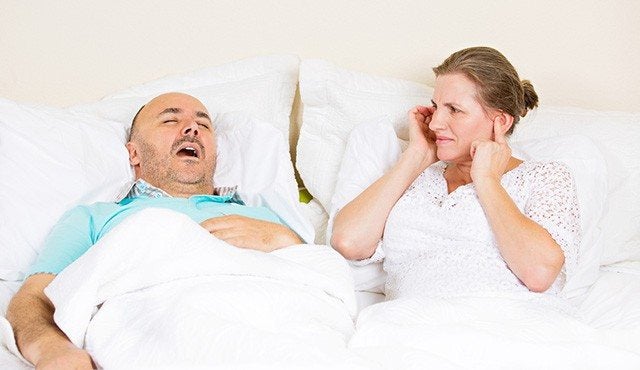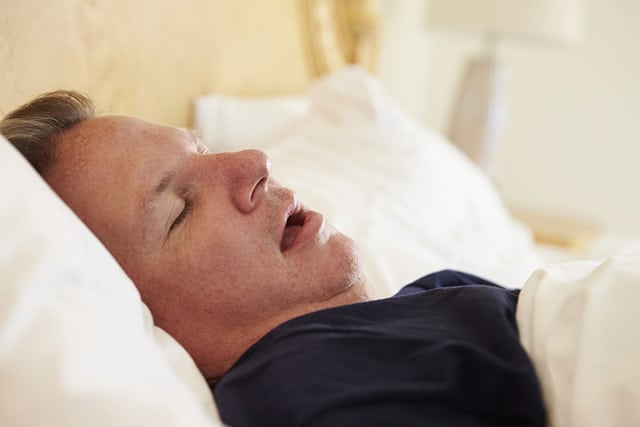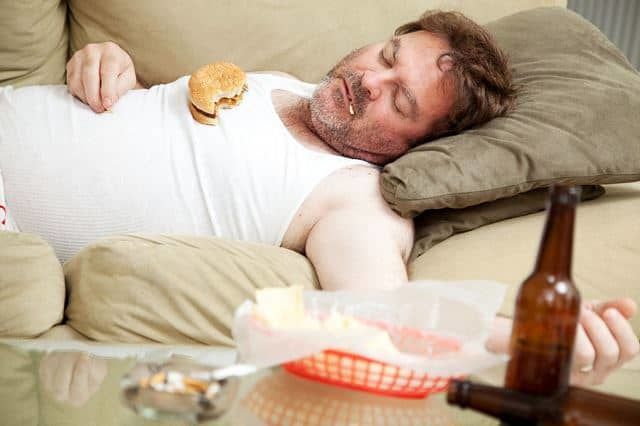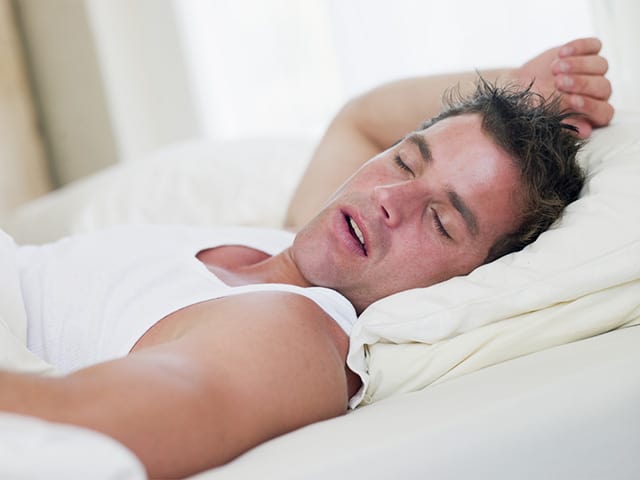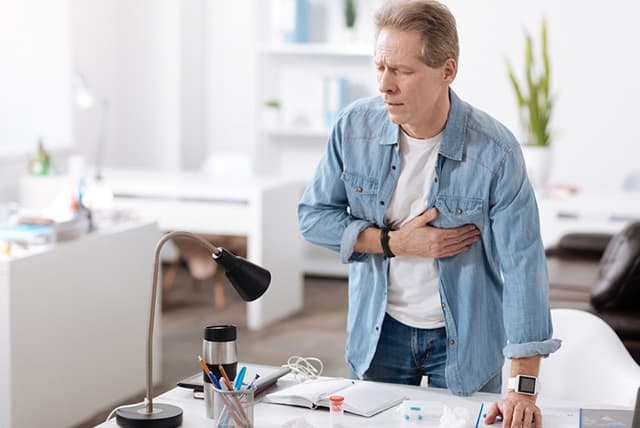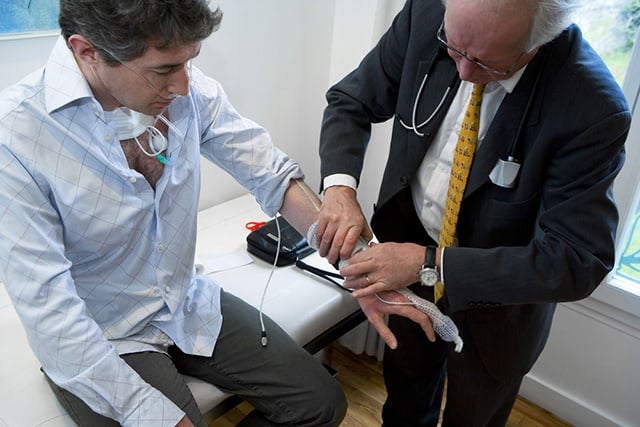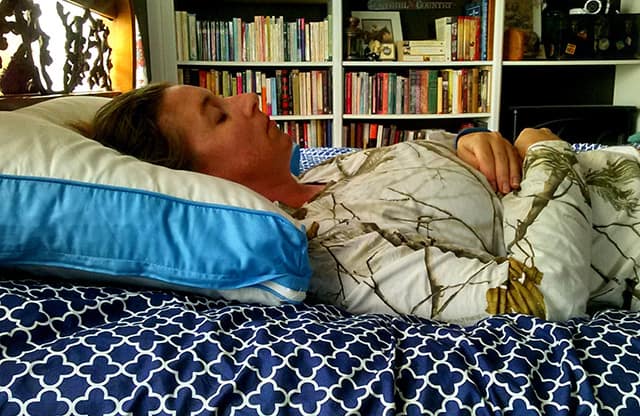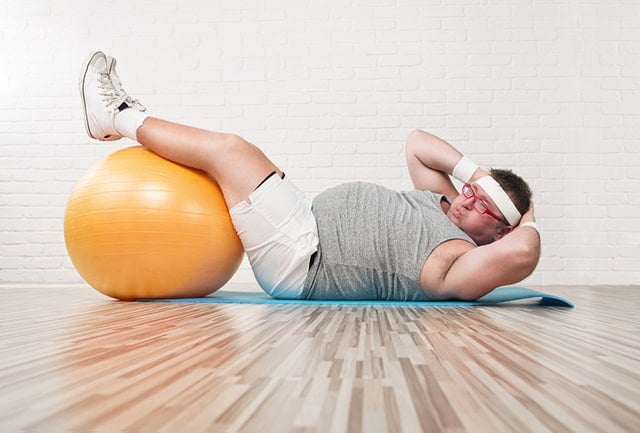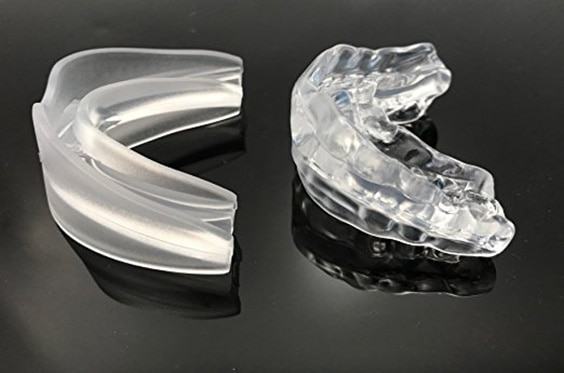There are plenty of individuals out there that treat their snoring as a joke or something to be embarrassed about, but it’s actually a very serious thing. Snoring, when loud and accompanied by fatigue during the day, is a sign of sleep apnea. The definition of sleep apnea in psychology is said to be a scary disorder that causes your breathing to stop randomly or become shallow while you’re sleeping, which can lead to uncomfortable night sweats. This can last from a few seconds to minutes and can occur 30 or more times per hour.
This troubling disorder can leave you cranky, sleepy, and it can even affect your relationship with your partner. Not to fret, though. There are ways that you can manage the disease without having to put your entire life on hold.
What Is Sleep Apnea?
To start, there are two sleep apnea types:
• Obstructive – This is the more common type of apnea, This is caused by a blockage of the airway. It usually occurs when the soft tissue at the back of the throat collapses while you’re sleeping. It causes considerably loud snoring and pauses in breathing. Another cause for this is that when the facial bones are and skull are developing, it can lead to a small mouth, lower than normal face and a tongue that may be too large.
• Central – Central sleep apnea is completely different than OSA. Somebody who has central apnea actually suffers from the effect of the brain failing to signal the muscles to breathe because of the instability in the respiratory control center.
• Complex – Complex sleep apnea is a combination between obstructive and central.
One major issue with this disorder is that most of the time, the sufferer doesn’t even know they have it until a spouse or friend witnesses it. More than 18 million American adults suffer from it and it isn’t specific to just one group of people. It can affect all age groups and both sexes. It can also cause a male to suffer from low testosterone due to the irregular sleep cycle. Fortunately, it can be reversed with treatment.
One major issue with this disorder is that most of the time, the sufferer doesn’t even know they have it until a spouse or friend witnesses it. More than 18 million American adults suffer from it and it isn’t specific to just one group of people. It can affect all age groups and both sexes. It can also cause a male to suffer from low testosterone due to the irregular sleep cycle. Fortunately, it can be reversed with treatment.
Sleep Apnea Causes
There are certainly quite a few things that can cause this disorder, but most of it has to do with the throat. The throat is encased by a variety of muscles that are responsible for controlling the airway for swallowing, breathing and speaking. While you’re sleeping, these muscles aren’t as active and it causes narrowing of the throat. In a lot of people, this has no effect on their breathing. When it comes to others, it can lead to snoring with an obstructed or completely blocked airflow. If your airway is blocked completely, it’s obstructive sleep apnea.
Risk Factors
The risk factors that come along with this disorder are sparse, but are definite red flags.
Age Increase:
It can happen to anybody, but is more common in middle age or older adults.
Sex:
Males are two times more common to have obstructive sleep apnea, especially during the middle age years.
Weight:
The more obese you are, the higher your risk for having obstructive sleep apnea.
Medication & Alcohol:
Medication that causes sedation can interfere with the ability to awake from sleep, leading to a lengthened period of apnea with dangerous consequences. The same goes for alcohol use.
Sleep Apnea Symptoms
Although most people show no symptoms, it isn’t until somebody’s partner raises concerns about their snoring. Those who do not share a home or a bed with somebody may not even realize that they have a problem. Apnea can cause the following:
- Headache
- Dry mouth
- Sore throat
- Being woken by choking, smothering or gasping
- Frequent urge to urinate during the night
- Lack of energy
- Concentration difficulty
- Impaired memory
- Fatigue
- Restless sleep
- Groggy
Complications
It’s scary to think about the complications that can come with apnea. Fortunately, not all of them are as bad as you think. Some of the effects of sleep apnea include:
- Daytime fatigue
- Difficulty concentrating
- Increased risk for accidents
- Errors in daily activities
- Increased risk of heart issues
- High blood pressure
- Heart attack or chest pain
- Stroke
- May contribute to anxiety
- Brain damage
How To Diagnose Sleep Apnea
Diagnosing this can be done by a specialist in the sleep medicine profession who is very knowledgeable about the disorder. They should have a good understanding of your health issues and the diagnosis can be made based on the person’s medical history, testing, and physical examinations. Testing is generally completed in a sleep laboratory using a study known as a polysomnogram.
This study measures blood oxygen levels, heart rhythm and rate, body position, movement of limbs, duration of different stages of sleep and breathing effort and airflow. You can also get a home sleep apnea testing machine or monitor to perform the tests. This is a good alternative to traditional studies in testing centers. It can be done only if the patient does not suffer from any other illnesses and is suspected to have a moderate or severe case of apnea.
Diagnosing the disorder is based upon one or more of these guidelines:
- High blood pressure & resistant to treatment
- Neck size (more than 17 inches for men and 16 for women)
- The observation of the patient during episodes of apnea, choking or gasping during sleep.
- A small upper airway
- Complaints of snoring or ineffective sleep
If you can relate to any of these, talk to your doctor.
You might want to read also: APAP Vs. CPAP: How Do the Two Sleep Apnea Machines Compare?
Sleep Apnea Treatment
The best way to treat the the disorder is to get the help from a sleep medicine specialist. Most of the treatments require use throughout the night and if properly done, it can eliminate the symptoms and long-term health consequences may also be reduced.
1. Continuous Positive Airway Pressure (CPAP)
This is one of the one of the best treatments and cures for sleep apnea. The CPAP is a mechanical device that uses air pressure to keep the upper airway open while sleeping. The device works by placing an attachment that’s air-tight on the nose, which is usually a mask of some kind, connected to the blower and tube that creates the pressure. The device is usually tested in the sleep lab to assure the pressure is correct and that the best machine is used. There’s also an “auto” device that can self-adjust the pressure feature as long as there’s proper knowledge and training. At first it may seem noisy and uncomfortable, but it’s the best way to help with the disorder.
2. Essential Oils
This is one of those remedies that may seem out of the ordinary, but essential oils can help reduce the effect of snoring. Oils such as lemon oil, thyme, lavender and peppermint were shown to reduce snoring by up to 82%. While such research was being done, it was concluded that these oils were also beneficial for sleep apnea as well. When purchasing these supplies, make sure that you’re getting the actual oils and not a mixture that you see in retail stores for a low price. These are not as effective as pure essential oils and may not work properly.
Essential oils are used for relaxation and stress-relief, resulting in a more restful home environment and more peaceful sleep.
3. Adjusting Sleep Position
Sleeping on your back can make the snoring worse to begin with, so those who switch their position from their back and onto their side or stomach may see relief from their condition. This may prove difficult to do throughout the night, which is why it’s not the best prevention method. If this is something that is in fact a plausible option, look for a comfortable mattress and some supportive pillows that will help your position transition easier.
4. Avoid Alcohol & Certain Medication
Alcohol may seem like a good idea to get some sleep, but it actually makes things worse. Those with obstructive sleep apnea are advised to not drink alcohol, and if the do, little of it. Those who are on certain medications are also advised to speak with their healthcare providers. People who use anti-anxiety medications or other sedating medications to snooze may increase their risk for blocked airways.
5. Weight Loss
Those who suffer from obesity, as we saw, are more likely to suffer from some sort of apnea. It’s helpful for them to lose weight. They can do this by dieting, exercising and/or treatments surgically. Even after the weight loss, it can be hard to maintain. Only 5 percent of those had success over five-years, leaving the other 95 percent to suffer from weight gain, reversing everything they worked so hard to accomplish.
You may be interested in: Can Exercise Help Your Sleep Apnea?
6. Dental Devices
A mandibular advancement device can help reposition the jaw to bring the tongue and soft palate forward. This oral device can help to relieve the obstruction in certain individuals. This treatment is also great for reducing snoring. These devices are an alternate option for those who cannot tolerate the CPAP machine.
You may want to read: Mouth Guards for Sleep Apnea
Conclusion
This is a tough condition to live with, especially if you aren’t aware that you have it. You can have it with or without snoring, it all depends on how severely the throat is collapsed. If you think that you have sleep apnea based on the symptoms or the guidelines, talk to your health practitioner. Your doctor can refer you to a specialist who will set you up with a testing center or treatment.

